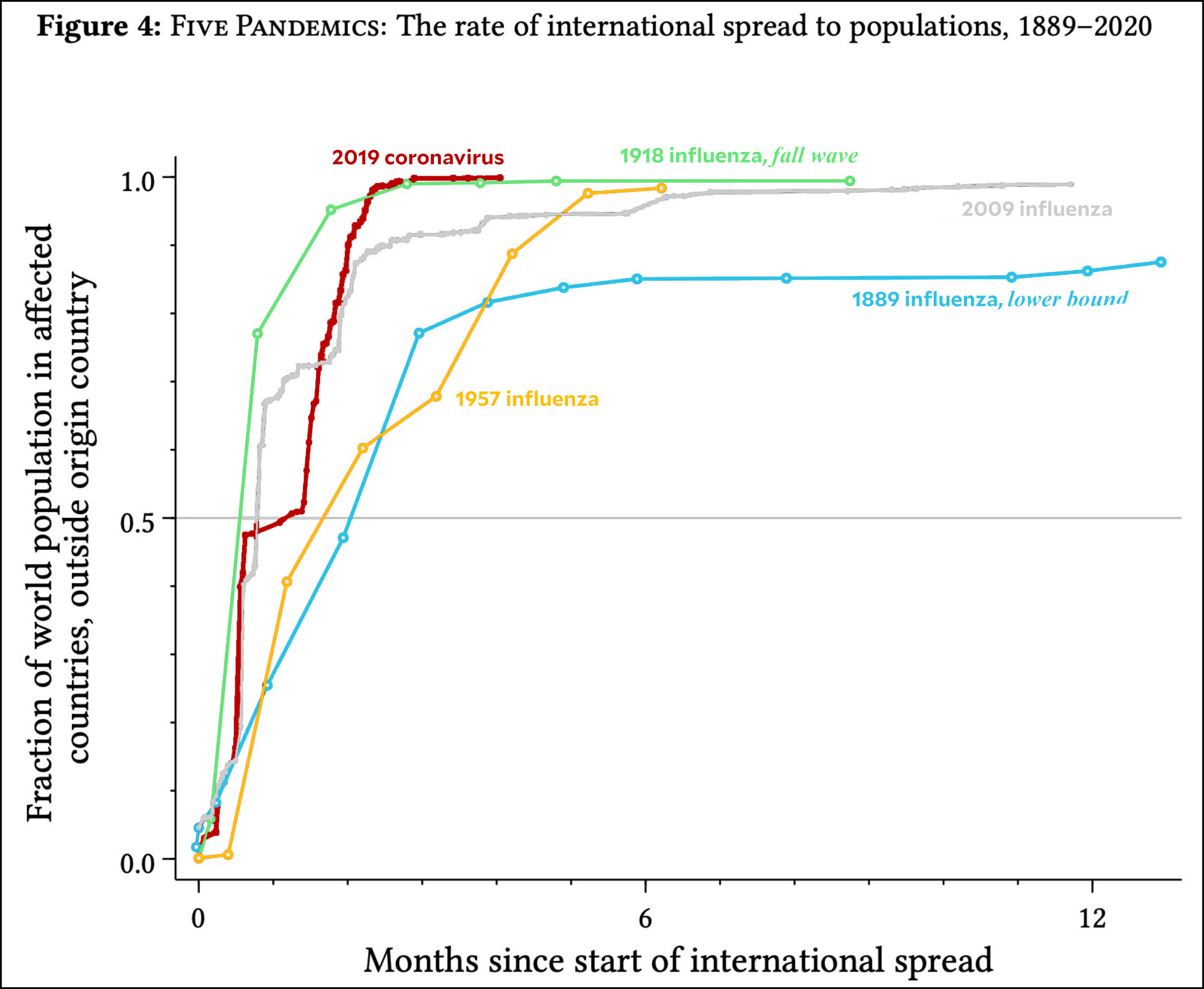How fast did the COVID-19 pandemic spread around the world? What with planes, trains, and automobiles now commonplace, you’d think it would be pretty quick compared to past pandemics. But Michael Clemens and Thomas Ginn decided to check this out, and they found little difference over the centuries:

The 1918 influenza epidemic spread faster than the 2019 coronavirus epidemic. The 1889 and 1957 influenza epidemics were a little slower, but not by much:
If spread depends heavily on the modern ‘age of mobility’, the spread of recent pandemics should be supercharged relative to older pandemics with similarly infectious pathogens. But there’s nothing like that in the data. Across the four past pandemics we study, from 1889 to 2009, the time it took for the pathogen to reach the median person on earth only varied by *six weeks*.
….We separately show, for each of the four past pandemics, that the time-of-arrival has no negative relationship with mortality. Staving it off a bit longer did not save lives. Action behind the border did; inaction did not.
This doesn’t actually surprise me that much. Mobility may have been lower in the past, but it doesn’t take a lot of people to spread a pathogen. One or two will do quite nicely. To spread from, say, Europe to the US in 1889, you just have to wait for that one person to sail across the Atlantic. This adds a week or two compared to traveling via United Airlines, and then another week or two because the probability of that one guy sailing over is lower than it is today. But once he’s here, it’s all over.
The authors stress that emergency restrictions on international travel during a pandemic aren’t completely useless. It’s just that their effect is small: halving a country’s exposure to international mobility produces a delay in pandemic arrival on the order of only one week. Most of the benefit of social distancing (and travel restrictions are just a form of social distancing) comes from reducing personal interactions inside national borders.

















